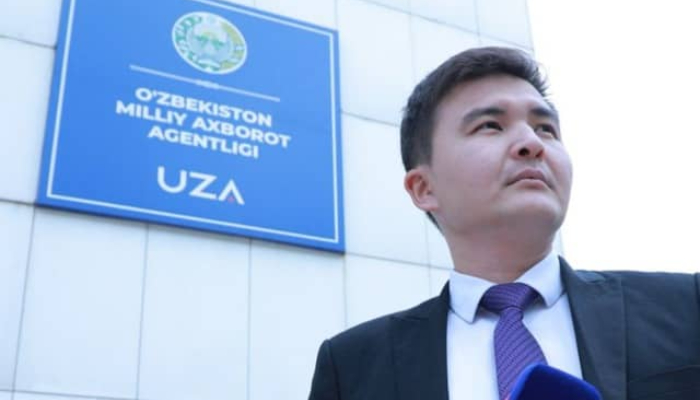
Tashkent: Oman football team is the only invited team to Central Asian Football Association Nations Cup, which began in Kyrgyzstan and Uzbekistan on June 10.
Oman takes on one of the joint hosts, Uzbekistan, in their opening clash on June 11, Sunday.
Besides the two hosts nations, the other nations in the fray are Afghanistan, Iran, Tajikistan and Turkmenistan.
As both the countries play on the field, I discuss areas of cooperation between Oman and Uzbekistan that has a huge potential.
For Uzbekistan, which is geographically separated from the sea, cooperation with the Arab countries plays an important role in establishing a transit, transport and communication network in Central Asia.
I would like to think a little about the important prospect of cooperation between the Sultanate of Oman and Uzbekistan.
The fact that our countries are united by a common culture, religion, tradition and spiritual values makes one happy. The image of the Sultanate of Oman painted in my mind is that it is a country of peace When talking about Oman, be it a senior politician, a thinker, an intellectual, a journalist or an ordinary person, the one picture that comes to my mind is of peace and its beautiful landscape.
Under the leadership of Sultan Haitham bin Tariq Al Said, the country is striving to increase economic competitiveness and social well-being, and build an enlightened society based on an excellent education system, based on the Oman Vision 2040 programme.
Diplomatic relations between Uzbekistan and Oman were established on April 22, 1992. The embassy of Uzbekistan operates in Muscat, and the embassy of Oman operates in Tashkent.
The Omani embassy in Tashkent was opened in April 2010 and relations between the two countries are witnessing remarkable progress.
In recent years, effective work has been done to activate trade and economic relations between our countries, increase the volume of trade, attract investment, and implement joint projects.
There were trade exchanges along the Silk Road towards the flourishing Omani ports, through which Omani products such as frankincense and copper were exported, along with other goods including goods re-exported from the African continent.
On April 23, 2016, an agreement on the creation of an international transport and transit corridor between the governments of the Islamic Republic of Iran, the Sultanate of Oman, Turkmenistan and the Republic of Uzbekistan entered into force.
Currently, the sub-regional transport corridor "Russia-Kazakhstan-Uzbekistan-Turkmenistan-Iran-Oman-India" is being formed within the framework of this Ashgabat Agreement. This effort is aimed at creating a reliable transport corridor for continuous transportation and transit of goods through the ports of Central Asia and the Gulf region.
The activities of the Uzbek-Omani investment company UzOman Capital, are on right track with investment projects totaling about $200 million implemented. The governments agreed to actively use the created effective joint platform to attract investments from Omani investors, as well as foreign investors in general.
In December 2020, a cooperation agreement was signed between Tashkent State University of Oriental Studies and Sultan Qaboos University. We believe that the two friendly countries will continue effective cooperation towards development and growth.
Today, sport plays an important role in the emergence of any country on the world stage. There are also relations between our countries in this field. In particular, over the past few years, various cooperation agreements have been signed between the National Olympic Committee of Uzbekistan and the Oman Olympic Committee.
The cooperation will go a long way in improving the skills of athletes, sharing experience, and implementing various programmes.
In general, Oman is keen to further develop cooperation in the field of sports with Uzbekistan.
We can also explore opportunities in implementing joint projects in the transport sector, attracting investments in the tourism sector, launching joint tourist exchange programmes, as well as practical measures to increase mutual passenger and cargo flows and conducting bilateral events aimed at enhancing cultural exchange between the two countries.
(The writer is a senior journalist and presently working as Junior editor of Uzbekistan National News Agency).